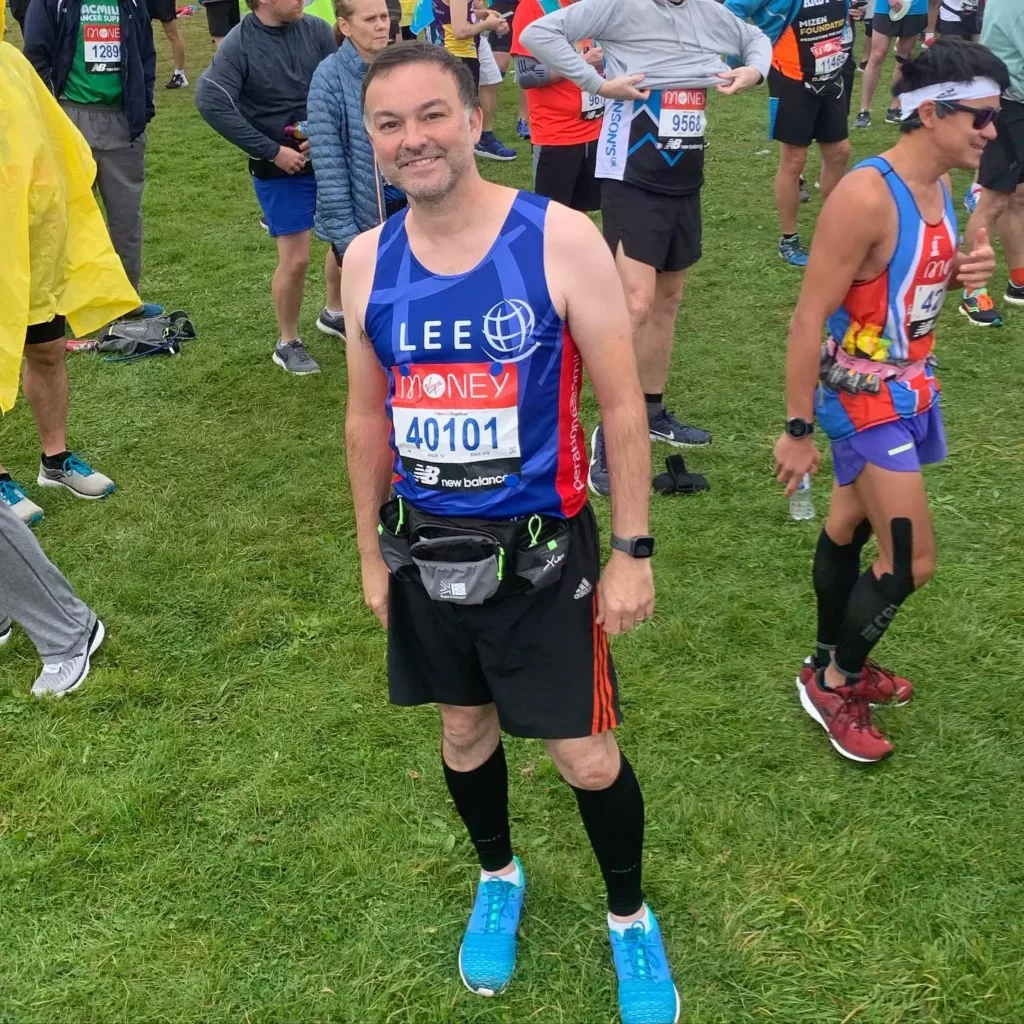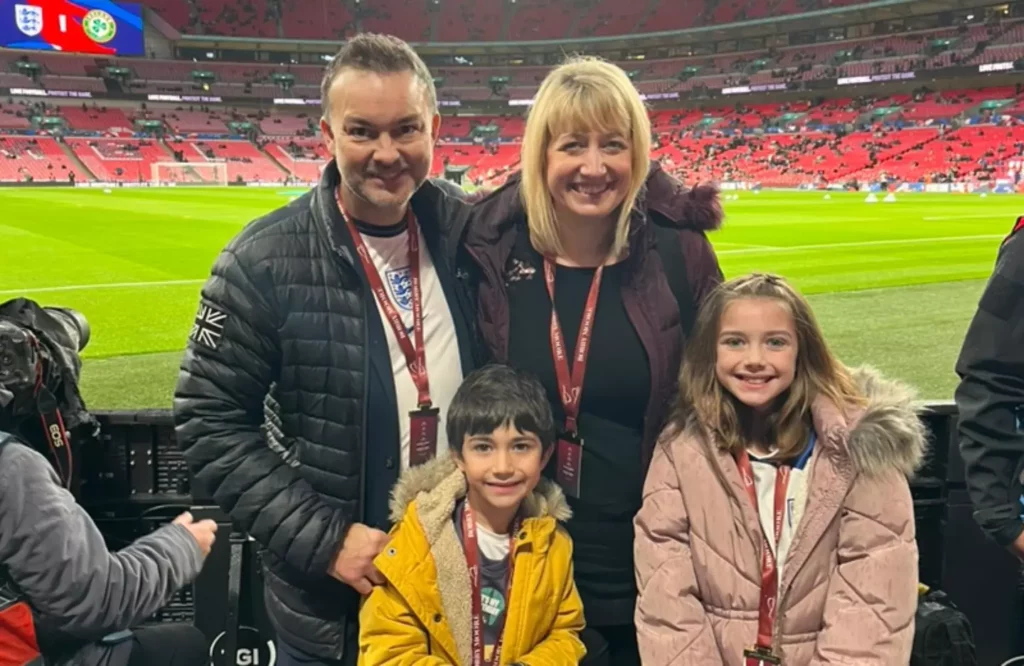When the Body Whispers: A Runner’s Heartbreaking Lesson About Ignoring Subtle Symptoms
What began as a minor ache turned into a devastating reality for Lee Rawlinson, a dedicated marathoner and father of two.
Initially dismissing his discomfort as stress-related or routine fatigue, Lee soon discovered that these faint signs were actually the early stages of one of the deadliest cancers.
Now, as he faces a terminal diagnosis, he’s using his experience to warn others: don’t ignore the small signs—because sometimes, they’re much more than they seem.
From Fit and Healthy to Terminal Diagnosis

At 51, Lee Rawlinson was the picture of health—an active marathon runner and a devoted family man living in Essex, UK, with his wife, Faye, and their two young children, Darcey and Marley. But on Halloween, his life took an unexpected turn when doctors diagnosed him with pancreatic cancer that had already metastasized to his liver. The prognosis was grim—he was given just months to live.
“I know this will be my last Christmas,” Lee said candidly. “It’s not death that frightens me most—it’s the idea of leaving my family behind.”
Determined to make the most of his time, Lee is now focused on making lasting memories with his loved ones—and spreading awareness about a silent killer that often goes undetected until it’s too late.

How the Symptoms Began
Lee’s symptoms started as a mild ache in his lower abdomen in January—something he thought was a stress-related issue. He consulted his GP, who referred him to a specialist, but the waiting list for diagnostic tests was 21 weeks long. Initial scans didn’t raise any red flags, and no urgent follow-up was scheduled.
As the months passed, the pain grew steadily worse. By September, it had become constant and intense—painkillers no longer offered relief. “It felt like a scaffolding pole was being pushed straight through me,” Lee recalled. The breaking point came during his son’s football practice, when the pain became unbearable. A visit to the emergency room finally led to a CT scan—and the shocking discovery of terminal pancreatic cancer.

The Urgency of Listening to Your Body
In retrospect, Lee wishes he had taken his symptoms more seriously. “If I’d insisted on further tests earlier, maybe things would’ve been different,” he said. He also discovered a possible genetic connection—his grandfather had also died from pancreatic cancer.
Sometimes, as Lee was told, it’s just fate. But he believes that raising awareness could help others catch the disease in time. “Don’t brush things off,” he urged. “If something doesn’t feel right, get it checked. You’re not overreacting—early diagnosis can be the difference between life and death.”
Creating Lasting Moments
Knowing his time is short, Lee has chosen to focus on love, family, and meaningful experiences. He recently surprised his children with a magical trip to Lapland, hoping to give them joyful memories that will last a lifetime. “Even if I can’t be there as they grow up, I want them to remember how much I loved them.”
He’s also become an advocate for more research into pancreatic cancer, a disease with survival rates that have remained alarmingly low for decades. “Too little has changed since the 1970s in terms of survival,” Lee said. “That has to change. We need better awareness and better tools to catch this cancer earlier.”
A Message That Could Save Lives
Lee continues to speak out in the hope that his story might save someone else from the same fate. Despite facing the end of his life, his focus remains on helping others recognize the early warning signs and act quickly.
If you or someone you care about is living with cancer or needs help, support is available 24/7 through the American Cancer Society at 1-800-227-2345 or via live chat.
Conclusion:
Lee Rawlinson’s story is a powerful reminder that even the smallest symptoms should never be ignored. What seemed like a harmless ache turned out to be a fatal illness—one that might have been caught earlier with quicker action. His experience underscores the urgency of listening to our bodies and advocating for our own health.
While his time is limited, Lee’s courage and determination to raise awareness will live on, inspiring others to act before it’s too late. His message is clear: trust your instincts, seek answers, and never dismiss persistent signs—because early detection could save your life.
